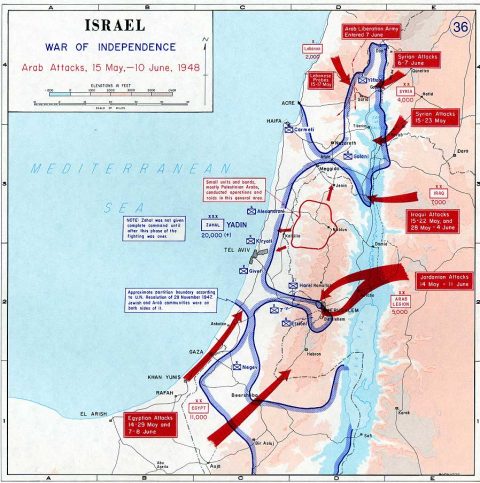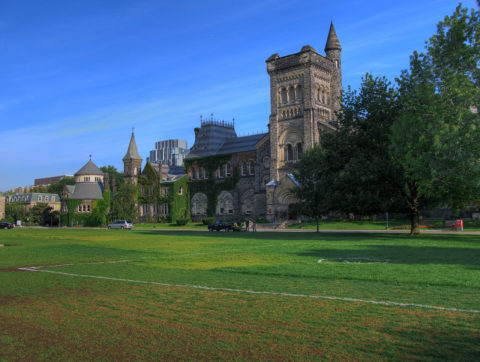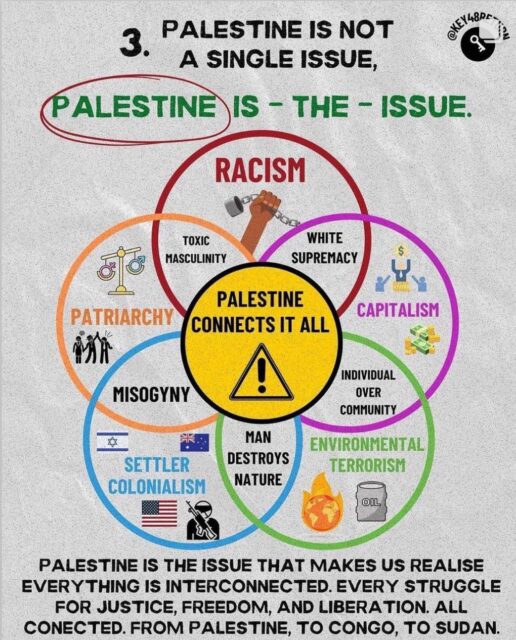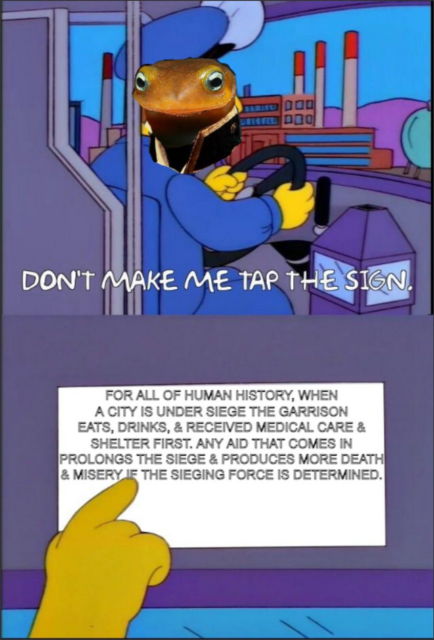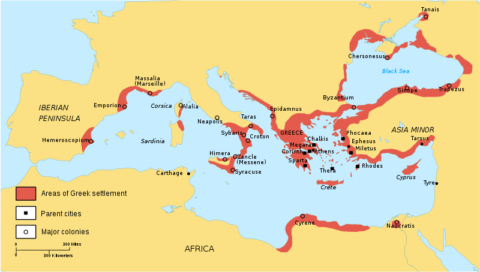It is generally a good idea for refugees to be housed in neighbouring countries rather than on different continents, for a number of reasons, but we should be wary of casually stating that Arab states should house Gazans. In a difficult region many of these countries have already put themselves under enormous strain through acts of immense generosity, and none more so than Jordan.
[…]
The survival of Jordan’s monarchy has been one of the more surprising outcomes of the past few decades, and experts have repeatedly bet against it. The country has an unusually bad hand in many ways. Situated beside the disputed Holy Land, it lacks the natural resources of neighbouring Saudi Arabia and Iraq, while also being more remote than Lebanon or Syria, which had long been at the heart of Mediterranean trading networks and far more plugged into European markets.
But most of all it has suffered the destabilising effect of refugees. Abdullah is named after his great-grandfather, the first King of Jordan, whose assassination in 1951 forms the opening of Hussein’s autobiography; indeed he calls it “the most profound influence of my life”. He was just 15 years-old when he travelled with his grandfather to Jerusalem to perform Friday prayers, where the monarch was shot dead by a Palestinian. The gunman then fired at Hussein but the bullet struck a medal his grandfather had given him.
Abdullah I had ruled the new kingdom for just five years, and it endured an incredibly bad start with defeat in the 1948 Arab-Israeli war, which led to a surge of refugees. Estimates of exact numbers seem to vary hugely, but in Lion of Jordan, Avi Shlaim writes that 700,000 Palestinians left in 1948, and of these “450,000 ended up in Jordan, which did more than any other Arab state to help them resettle and integrate with the rest of society”.
He wrote: “The refugees in Jordan wanted to preserve their separate Palestinian identity, but this ran counter to Abdullah’s policy of ‘Jordanization’.” He gave them citizenship rights “but the refugees were a great burden on the weak Jordanian economy; it simply did not have the financial resources to cope with a humanitarian tragedy on such a vast scale.” Many ended up in resentful poverty and “the Palestinians thus became an important factor in domestic Jordanian politics”.
Another source suggests that in 1949, “Jordan welcomed approximately 900,000 refugees by amending the country’s 1928 Law of Nationality to grant equal citizenship to Palestinians; the 1954 Law of Jordanian Nationality later extended citizenship to Palestinians who arrived in Jordan after the 1949 addendum.”
After another defeat against Israel in 1967, up to 300,000 displaced Palestinians in the West Bank retained Jordanian citizenship, and today around 40% of the Jordanian population descend from Palestinian refugees, although the figure may be higher (again, they vary hugely). What seems certain is that about 40% of displaced Palestinians and their descendants live in Jordan, with another 10% in Syria (although many of those have since fled to Lebanon).
The Hashemites, unlike some Arab countries, were keen to integrate the newcomers and to avoid them having to endure a permanent refugee existence; that is why three-quarters of Palestinians in Jordan are Jordanian citizens, although Palestinians from Gaza aren’t, that area having been part of Egypt before the Six-Day War.
In contrast Palestinians who fled to Syria were not given citizenship, for all the talk of solidarity, and often remained in refugee camp-cities for decades (many of which were heavily affected by the Syrian war).
In Lebanon it was even worse; there the Palestinians could neither gain citizenship, nor in many cases access things like healthcare, education or work. The situation here was uniquely dangerous, because their arrival tipped the country’s incredibly delicate balance between Christians, Shia, Sunni and Druze; in 1975 the country descended into civil war, a horror that saw a modern example of shibboleths where Christian militiamen would present tomatoes to suspected Palestinians and ask them to pronounce the name.
This refugee surge had a destabilising effect on Jordan. Already in 1958 things were so bad that Hussein hoped to form a tripartite union with Saudi Arabia and Iraq to counter the influence of Gamal Abdel Nasser’s Egypt. Neither neighbour was too keen on the idea, and Saudi prince Abd al-Ilah remarked that “Hussein’s trouble stemmed from the fact that 70 per cent of his subjects were Palestinians with no loyalty to the throne”.
But in 1970, three years after the Six-Day War, it reached a crisis point, with the British ambassador commenting that “the mixture became so volatile that the container exploded”. There now came full civil war in Jordan between the army and the Palestinian fedayeen.
Jordan had become home to the Palestinian Liberation Organisation, but this umbrella group was itself split into different factions, Fatah being the largest and most moderate. They were reluctant to get involved in the internal affairs of other Arab states, but this was not the case with the more extreme Popular Front for the Liberation of Palestine led by Dr George Habash (who, as his name suggests, was a Christian) and the Marxist-Leninist Popular Democratic Front for the Liberation of Palestine (yes, it does get very Life of Brian).



